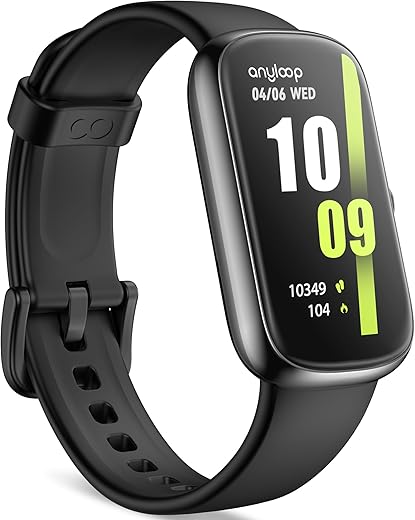
Fitness trackers for men
In 2020, the global market for wearable fitness trackers reached an estimated value of over $36 billion. A testament to their soaring popularity, these devices have become almost as common as smartphones, especially for men seeking to monitor their physical activity and health metrics. Originally designed as simple pedometers, modern fitness trackers for men now encompass a wide array of functionalities including heart rate monitoring, sleep tracking, calorie counting, and even stress management. They can be found integrated into wristbands, smartwatches, and other wearables.
The advent of fitness trackers dates back to the 1960s with the invention of the first pedometer, known as a manpo-kei, which translates to “10,000 steps meter” in Japanese. Over time, advancements in technology and a growing interest in personal wellness led to the evolution of these basic step-counting devices into the sophisticated gadgets we see today. The introduction of features tailored specifically for men, such as robust designs, customizable interfaces, and integration with strength training regimes, have cemented fitness trackers as essential tools in the modern man’s health and fitness arsenal.
One of the primary draws of these gadgets is the positive impact they have on encouraging physical activity. A study found that men who wear fitness trackers increase their physical activity levels by an average of 30%, underlining the motivational power of wearable technology. By setting and tracking goals, users are more likely to stay on course with their fitness plans. Contemporary models cater to the diverse lifestyles of men; they withstand the rigors of intense outdoor activities, integrate with smartphones and computers for comprehensive progress analysis, and often come equipped with coaching algorithms that offer personalized feedback based on an individual’s activity levels and objectives.
Another compelling aspect of modern fitness trackers is their ability to connect to a larger community. Manufacturers offer apps and platforms where users can share achievements, compete with one another, or participate in collaborative challenges. Such social features introduce a gamification element to fitness, appealing to the competitive spirit while also fostering camaraderie and a sense of accountability among peers. Many men find this to be a powerful motivator, harnessing the competitive edge to push their limits in pursuit of better health or athletic performance.
What Are the Best Fitness Trackers for Men in 2023?
Fitness trackers for men have evolved significantly, offering a plethora of features that go beyond counting steps. They are now indispensable tools for anyone looking to improve their health and fitness levels. These devices monitor various metrics such as heart rate, sleep quality, calories burned, and offer personalized workout suggestions. They often include GPS tracking for distance-based activities, water resistance for swimmers, and integration with smartphones for notifications. The advantage of using fitness trackers is the ability to set and track goals, analyze progress over time, and stay motivated by sharing milestones with a community. In the following sections, we delve deeper into the specific features to consider when choosing the perfect fitness tracker to match your lifestyle and fitness goals.
Fitness Trackers for Men: Features and Benefits
Fitness trackers for men are designed not only to accommodate diverse lifestyles but also to address specific health concerns and fitness goals that men might have. Modern fitness trackers go beyond simply counting steps and calories burnt; they have evolved to provide a variety of features including heart rate monitoring, sleep tracking, and even stress management. With advances in technology, these gadgets have become indispensable for men looking to gain a detailed understanding of their health and fitness progress.
Diverse Styles and Durability
One of the key considerations for men when selecting a fitness tracker is the device’s durability and style. Many fitness trackers now boast water-resistant properties, making them suitable for activities like swimming and water sports. Brands such as Garmin and Suunto offer rugged designs that can withstand extreme outdoor conditions, which is ideal for adventurers and athletes. On the flip side, sleek and minimalistic designs from companies like Fitbit or Apple appeal to those who desire a gadget that fits in with a professional or casual attire.
Advanced Health Monitoring Features
Fitness trackers for men have gone beyond basic tracking to offer advanced health monitoring features. These include electrocardiogram (ECG) capabilities, blood oxygen level monitoring, and VO2 max readings, which can provide critical information about cardiovascular health. Some fitness trackers also offer recovery advice, tracking how long it takes for the wearer’s heart rate to return to normal after a workout, providing insights into overall fitness levels and endurance capacity.
Integration with Fitness Apps and Smart Notifications
Integration with popular fitness apps is another advantage that modern fitness trackers provide. Men can synchronize their devices with apps such as Strava, MyFitnessPal, and others to track workouts, set goals, and monitor dietary intake. Additionally, many trackers offer smart notifications which allow users to stay connected with smartphone alerts for messages, calls, and app notifications directly on their wrist, ensuring they remain engaged with their social and professional life even while working out.
Customization and Personal Training
Personalization is another feature that has become increasingly popular in fitness trackers aimed at men. Interchangeable bands, customizable watch faces, and personalized training plans make these devices versatile for various needs and preferences. Some trackers come with built-in virtual personal trainers, offering dynamic workout suggestions based on user activity and fitness level, effectively replacing the need for a flesh-and-blood trainer for some users.
Battery Life and Connectivity
A practical aspect that cannot be overlooked when discussing fitness trackers is the battery life. Men often prefer devices that do not require constant charging. Fitness trackers now boast extended battery life, with some models running for a week or longer on a single charge, which is quite convenient for those who prefer to wear their trackers 24/7. Furthermore, connectivity options such as Bluetooth, ANT+, and Wi-Fi are standard, ensuring seamless communication with other devices and enabling users to join a community of like-minded individuals for motivation and competition.
Market Trends and Popularity
The global market for fitness trackers is on the rise, with a growing consciousness around health and fitness among men. A recent statistic from Grand View Research suggests the global fitness tracker market size was valued at USD 36.34 billion in 2020 and is expected to expand at a compound annual growth rate (CAGR) of 15.4% from 2021 to 2028. This growth is indicative of the increasing demand for wearable technology that enables individuals to monitor their health and activity levels accurately, encouraging a proactive approach to well-being.
1. What are the best fitness trackers for men?
The best fitness trackers for men often vary based on personal preference, but popular options include the Fitbit Charge series, Garmin Forerunner or Fenix line, Apple Watch, Samsung Galaxy Fit, and WHOOP Strap. It is recommended to compare features, design, and durability to find one that best suits your fitness goals and lifestyle.
2. Can fitness trackers accurately measure heart rate?
Most modern fitness trackers for men feature optical heart rate monitors that can accurately measure heart rate during rest and activities with a high degree of precision. However, for the most accurate heart rate data, especially during intense exercises or variability in movements, chest strap monitors are recommended.
3. Are fitness trackers water-resistant?
Many fitness trackers for men are designed to be water-resistant, making them suitable for activities like swimming or running in the rain. However, the level of water resistance can vary between devices, so it’s important to check the specifications for details on depth and duration limits.
4. How long does the battery typically last on a fitness tracker?
Battery life on a fitness tracker varies widely depending on the model and usage. Basic fitness trackers may last up to a week or more on a single charge, whereas more advanced devices with GPS and full-color displays may need to be charged every few days. Always check the manufacturer’s specifications for battery life information.
5. Is it possible to synchronize a fitness tracker with a smartphone?
Yes, most fitness trackers for men have the capability to sync with a smartphone. They usually have a companion app that enables you to review your fitness data, set goals, and receive notifications. Compatibility can vary, so ensure your smartphone’s operating system is supported by the fitness tracker.
6. Can fitness trackers help with weight loss?
Fitness trackers can be a helpful tool for weight loss by tracking your daily activity levels, calories burned, and providing insights into your sleep patterns and workout effectiveness. They often include features that help you set goals, track your progress, and maintain motivation.
7. Are GPS-enabled fitness trackers important?
GPS-enabled fitness trackers are particularly useful for outdoor athletes such as runners, cyclists, and hikers, as they provide accurate distance, pace, and route information. If you primarily exercise indoors or are not as concerned with location tracking, a GPS-enabled tracker might be less of a priority.
8. How do fitness trackers track sleep?
Fitness trackers generally use a combination of movement sensors (accelerometers) and heart rate monitoring to estimate sleep patterns, including the duration and quality of sleep. They provide insights into your sleep stages (light, deep, REM) and may offer suggestions for improving your sleep.
9. Can fitness trackers withstand heavy sweating and high-impact activities?
Most fitness trackers for men are designed to be durable, withstanding sweat and everyday wear and tear. For high-impact activities or contact sports, it’s important to choose a tracker that’s specifically rated for impact resistance and has a secure fitting mechanism to prevent loss or damage.
10. Do all men’s fitness trackers include a calorie counter?
While not all fitness trackers include a calorie counter, most modern trackers do offer this feature. They estimate calorie burn based on the user’s heart rate, physical activity, and personal data such as age, weight, and height. Accuracy can vary, so they are best used as an estimate rather than an exact calculation.
Conclusion
Fitness trackers for men have emerged as essential tools for those committed to staying active and achieving their health goals. Their ability to monitor various metrics such as heart rate, calories burned, step count, and sleep quality provides invaluable insights that guide men towards optimized workouts and better health management. The customization and varied functionalities offered by these devices ensure that they cater to the diverse needs of men across different fitness levels and lifestyles.
Moreover, the integration of fitness trackers with smartphones and the use of companion apps have enhanced their utility, making it easier for men to set goals, track progress, and even compete with friends, which adds a motivational dimension to their fitness routines. The evolution of fitness trackers to incorporate features like GPS tracking, waterproofing, and long battery life also means that they are more robust and adaptable than ever. In sum, fitness trackers for men have proven to be more than just gadgets; they are comprehensive wellness companions that support a healthier, more active way of life.





